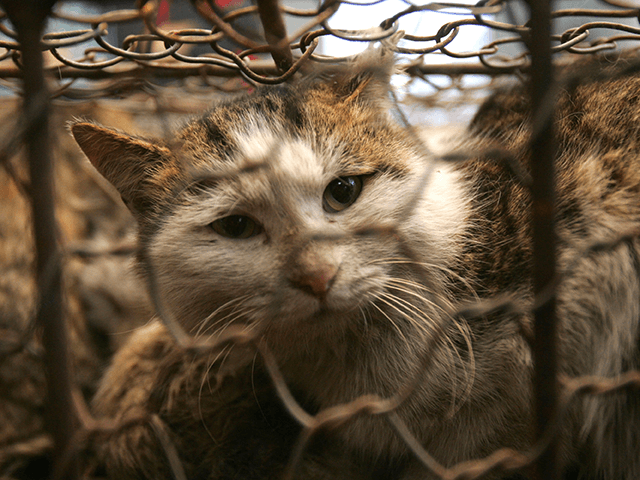A resident of southwestern China’s Chengdu city claimed on social media this month local health workers killed her pet cats after she was forced to enter a state-run coronavirus quarantine facility, the South China Morning Post (SCMP) reported Friday.
“This month, a Chengdu resident in southwestern China claimed on the social media platform Xiaohongshu that her cats were killed after she was moved from her home into quarantine,” according to the newspaper, which did not provide an exact date for the alleged incident.
The allegation comes less than two months after local government authorities in northeastern China’s Harbin city euthanized three pet cats on September 28 against their owner’s wishes citing fears they could spread coronavirus, for which the cats had tested positive.
The owner of the three cats tested positive for coronavirus before her pets on September 21. Harbin health officials ordered the woman to vacate her apartment and enter a state hospital to begin a mandatory quarantine period later that same day.
“Shortly after, a community worker carried out tests on the cats and all three cats tested positive for the virus twice, prompting authorities to take action,” Britain’s Independent newspaper relayed on September 30, citing a September 28 report by the state-run Beijing News site.
“Despite appeals from the cat owner, the three cats were put to sleep in what has been viewed as a harsh and extreme measure by Chinese authorities to control the disease spread,” according to the report.
“The cats would have continued to leave viral traces in the room,” an unnamed Harbin community health worker told Beijing News at the time.
“There is probably no professional medical treatment for animals infected with the novel coronavirus,” he said.
The city health worker seemed to imply that the cats, left untreated, might have posed a reinfection risk to their owner or other residents of her apartment building. This argument contradicts official health data, which demonstrates that the risk of coronavirus transmission from pet animals to humans is extremely low.
“At this time, there is no evidence that animals play a significant role in spreading SARS-CoV-2, the virus that causes COVID-19 [Chinese coronvirus disease], to people,” the U.S. Centers for Disease Control and Prevention wrote in a notice posted to its website on October 5.
“So far, in the whole pandemic, there have been no confirmed reports of cat to human infection,” Vanessa Barrs, a professor at the City University of Hong Kong who specializes in animal health and disease, told Reuters on September 29.
“It doesn’t seem very realistic that cats would contaminate the environment so badly that they would be a risk for their owner to re-contract Covid-19,” Rachael Tarlinton, a virology professor at the University of Nottingham, told Reuters. Tarlington noted that “surfaces are not a major route of viral transmission.”
The United States Food and Drug Administration (FDA) states on its website, “Based on the information available to date, the risk of animals spreading COVID-19 to people is considered to be low.”
In the wake of both Harbin’s and Chengdu’s alleged cases of pet euthanasia, observers questioned “if it was legal for the governments to kill pets,” SCMP noted on November 12. “According to Chinese law, wild animals or livestock infected during a pandemic can be killed. But cats and dogs are not listed as livestock.”
The Hong Kong-based newspaper said it “asked the Chengdu government what policy they followed” to carry out this month’s alleged cat killing.
“[A] staff member said they are also waiting on clearer policy direction from the central government and told the Post‘s reporter that instead of questioning the government they should: ‘go read current policies,'” according to the publication.

COMMENTS
Please let us know if you're having issues with commenting.